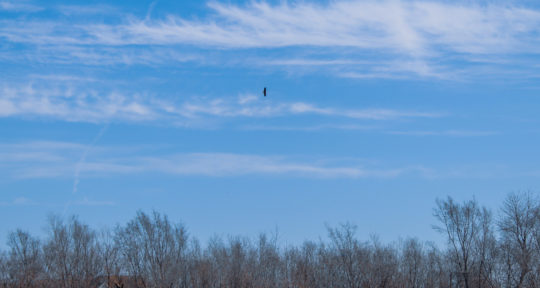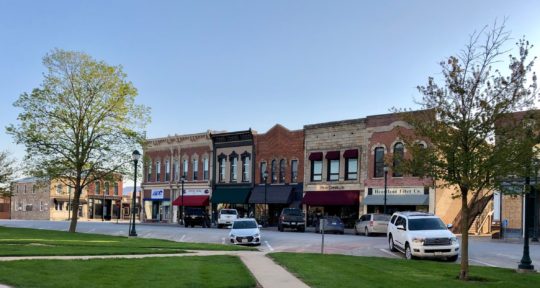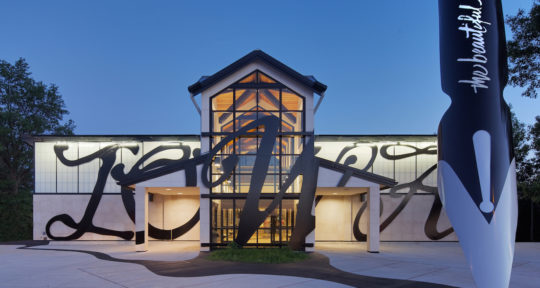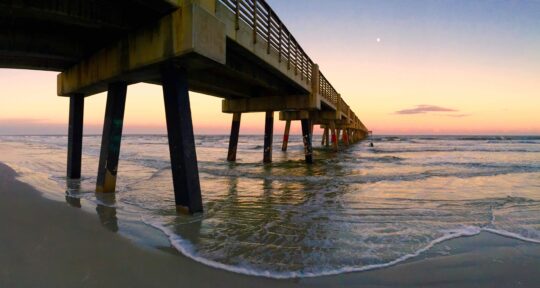In the small town of Centerville, Iowa, Pancake Day is a very big deal. For 72 years, the residents of Centerville have gathered every September for free stacks of flapjacks, a parade, and a celebration of their tight-knit community. But like the rest of the world, Iowa has been coping with COVID-19 for months. Some of the necessary adjustments made to keep its people safe include cancelling this year’s Iowa State Fair—one of the very few cancellations since the iconic summertime event was first held in 1854. For now, though, Pancake Day remains the highlight of Centerville’s upcoming town schedule.
“It may not be exactly the way we’re used to doing it for 72 years, but so far Pancake Day is still on,” says Delaney Evers, a fourth-generation Centerville resident. “When I was a kid, it was just magic.”
Evers, a sales manager and wedding planner at Honey Creek Resort on Rathbun Lake, recently returned to Iowa from Los Angeles, where she moved at age 19 to attend the Fashion Institute of Design and Merchandising. Even while working as a fashion publicist and living in a chic downtown loft, Evers dreamed of tiny Centerville. “At first I’d just tell people about Pancake Day and wear my shirts from years past,” she says. “Then I started having friends over for an annual Pancake Day. I moved back in 2018, two weeks before Pancake Day, and was one of the first in line at the pancake tent.”
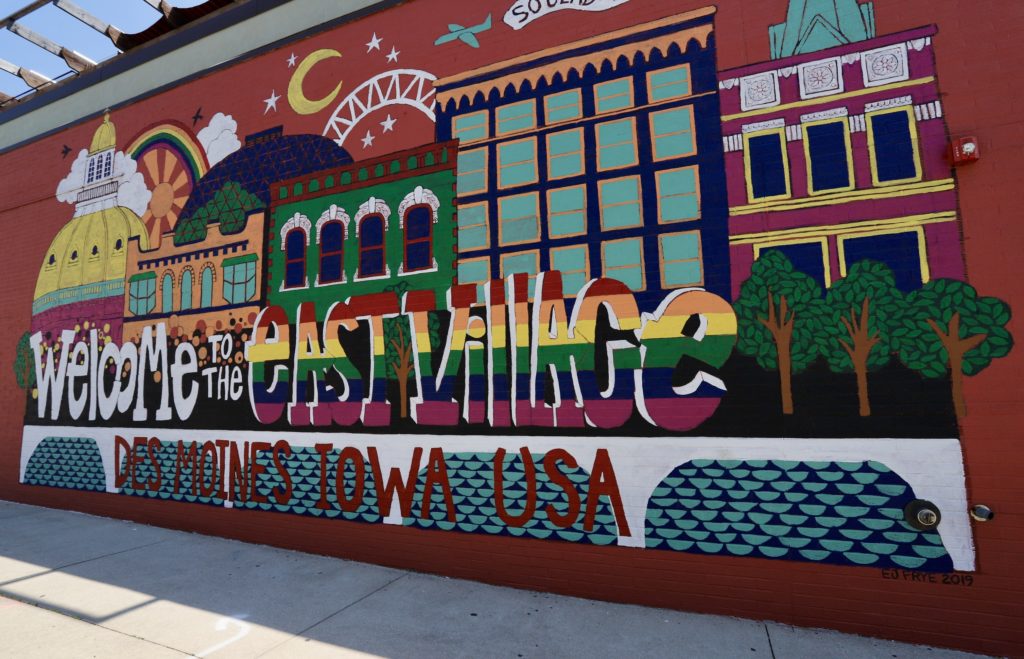
The charm of Centerville
Home to a picturesque historic town square—the largest in Iowa—Centerville has plenty of other charms besides pancakes that lured Evers back. “Seasons,” she says with a laugh. “Seasons help me plan my year. What kind of purgatory doesn’t have any seasons?”
She also had her family and several childhood friends awaiting her return. “My great-grandma came here from Belgium when she was a baby and it was a coal-mining town with a lot of European immigrants,” says Evers. “From my grandparents on, it’s all been small business owners, so I guess that’s where I get my entrepreneurial bug.”

When Evers heard about a job opening at scenic Honey Creek Resort, she felt it was fate. At the popular summer spot, she helps plan what she calls “destination within reach” weddings for couples from Iowa and nearby Missouri. “It has the feel of a destination wedding but you’re not asking people to spend a fortune and fly anywhere,” she says.
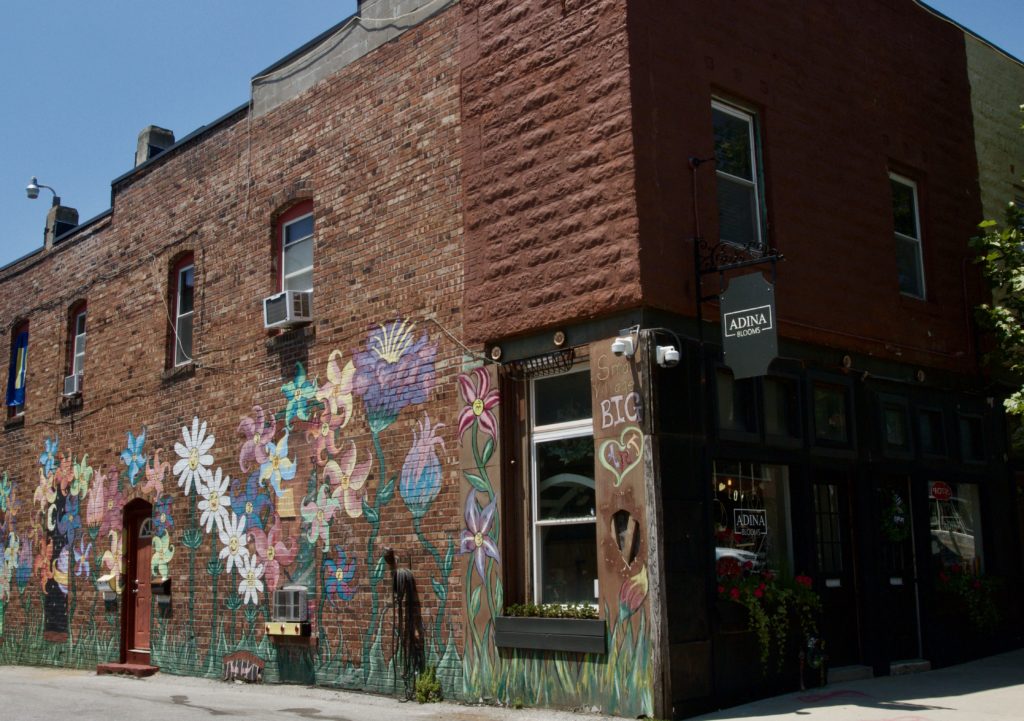
At Honey Creek, the resort is taking every precaution to keep guests safe this summer (peak season), including placing sanitation stations throughout the property, requiring staff to wear masks, and compiling a detailed 114-page safety handbook. Evers says couples have been incredibly cooperative and creative in finding ways to celebrate their special day.
“I’ve been working with some of these couples for a year and a half,” says Evers. “They want to proceed while keeping their families safe. In some cases grandparents aren’t coming or maybe they cut down the guest lists. Some guests are doing their weddings at a courthouse and pushing back receptions for later. Everyone is embracing technology like Zoom.”
She adds that customers can help support their favorite local businesses simply by being understanding. “Certain things might still be closed, like the resort’s water parks. As restrictions are lifted, we are making sure everyone is properly trained to keep themselves and guests safe.”

Leaning on family in Des Moines
In Des Moines, Iowa’s largest city, Dwana Bradley knew right away that she’d have to act quickly and adapt to make sure her business continued to reach its target audience during the COVID-19 pandemic. Bradley is the editor-in-chief of Urban Experience Magazine, which she says is “the best-kept-secret African American publication.”
The Bradley family has always served the local Black community. Dwana’s father, Rod Bradley, was in charge of the Iowa Bystander in the early 1980s before leaving to be a pastor. “It was the oldest African American publication this side of the Mississippi,” he says.
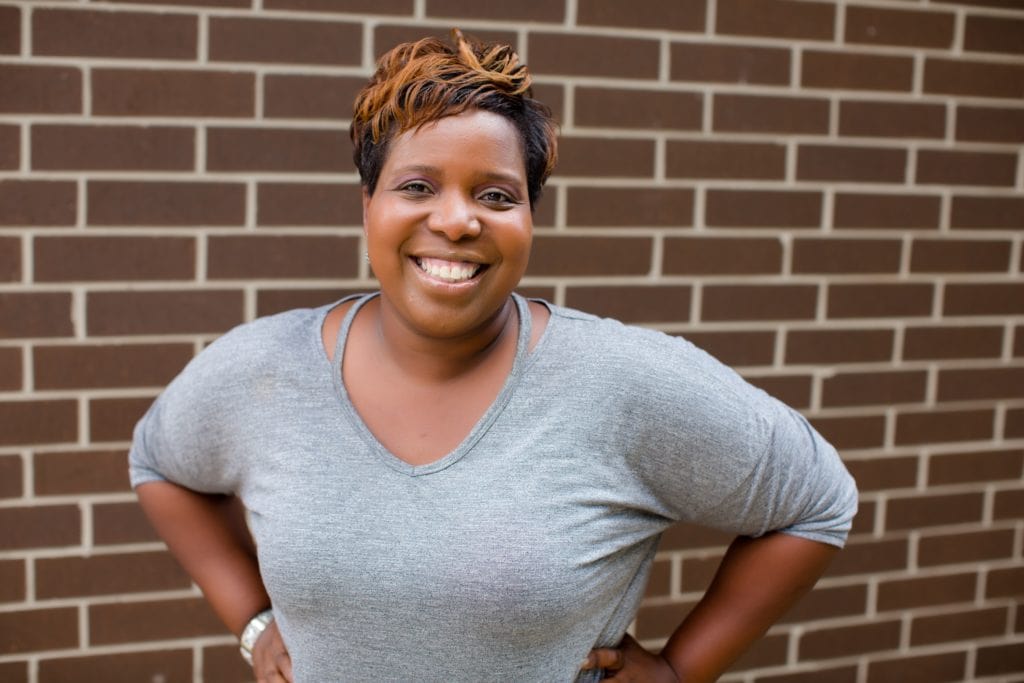
In 2014, shortly before the Bystander shuttered for good, Rod decided to publish Urban Experience Magazine and called on his daughter to be editor-in-chief. “We started it in our own home,” says Bradley. “The publication highlights education, health, arts and culture, public affairs, spirituality—we cover the whole gamut. We highlight our African American culture but also educate people about what’s going on in Des Moines and the state of Iowa.”
The magazine is submission-based, ranging from targeted healthcare articles written by partners at local hospitals to an art column penned by Angela Jackson, an entrepreneur who owns The Great Frame Up, a picture framing shop in West Des Moines. Bradley addresses readers each month in a warm and educational editor’s letter. “We just saw the need and answered the call to keep our community informed,” she says.
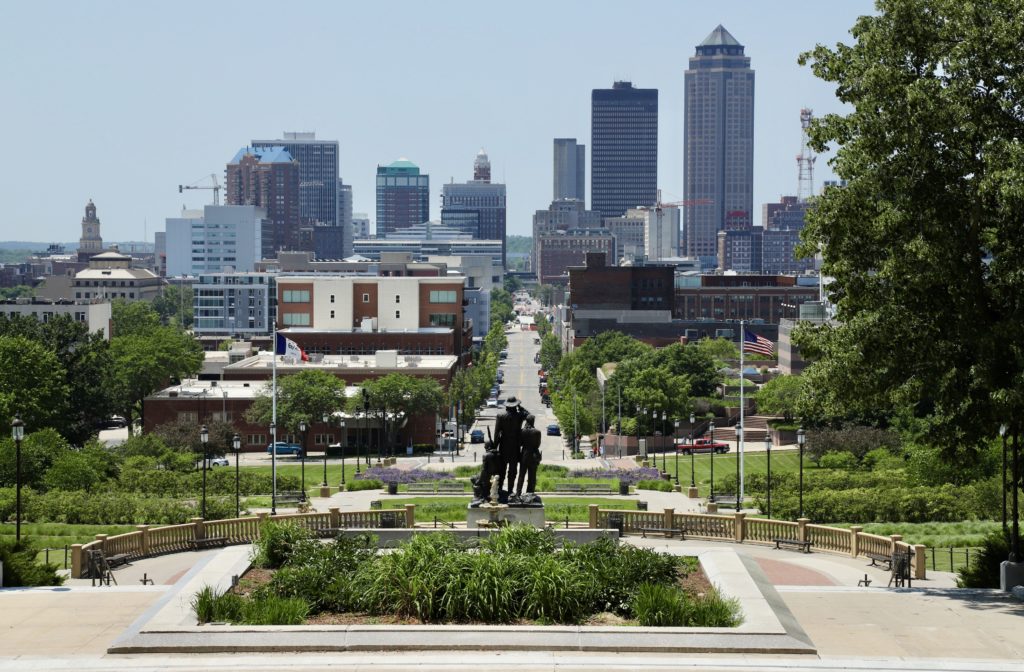
The past few months have been challenging. “We’re in digital mode right now because we wanted to be mindful of not knowing whose hands touched what,” Bradley says. “A lot of businesses have been closed so our advertisers were unable to renew and we were scrambling to stay afloat. Some of our employees were sick or just unable to get motivated because of everything. We combined the April and May issues into one. It was discouraging but I kept pushing.”
In addition to rethinking her business for the short-term future, Bradley also came up with solutions for this year’s Juneteenth, the nationally celebrated holiday commemorating the end of slavery. As the general chairperson of Iowa Juneteenth, Bradley helped transition the various events that had been planned for the weekend of June 19 to a virtual platform (a fundraiser is still up on the Iowa Juneteenth website).
“[Juneteenth is] something I’m very passionate about,” she says. “It’s a time to celebrate us. We don’t get to do that very often. As an American, I am proud to make sure we elevate Black people and their voices. It’s a more important time than ever for people to speak up and be an ally and support what we’re doing.”

One way Iowans can support Urban Experience Magazine is by doing business with Iowa Urban Media, another Bradley family venture. “We print, publish, and promote,” says Bradley. “We’re part of Iowa’s Targeted Small Business Program. We do digital promotion and printing. We recently worked on a small business campaign for presidential candidate Tom Steyer and plan to do more of that kind of thing in the coming months.”
After working hard to make her business debt free, Bradley has avoided taking out any emergency loans so far and hopes to have interns in the office by fall—taking any necessary social-distancing precautions. In the meantime, she’s always got help on hand—her dad Rod and mom Teresa give their feedback on every issue.
“This magazine will make a huge impact on the state of Iowa,” Bradley says. “There’s nothing else of the kind. It’s why we do what we do.”
Dunlap is home to Smitty’s Angels
All across Iowa, communities have discovered what a huge impact even a small action can make during the COVID-19 pandemic. In the small town of Dunlap (population 1,050), Smitty’s Grocery has long been a local fixture. And as the only grocery store around, a business couldn’t be any more essential.
“We are what people call a mom-and-pop store,” says Dale Smith, who opened Smitty’s in 2001. “We’ve been told by our customers that we have the best hamburger around and we also do specialized cuts of ribeye sandwiches for the local tractor pull and Dunlap’s annual 4 County Fair. These are something you won’t soon forget after trying.”
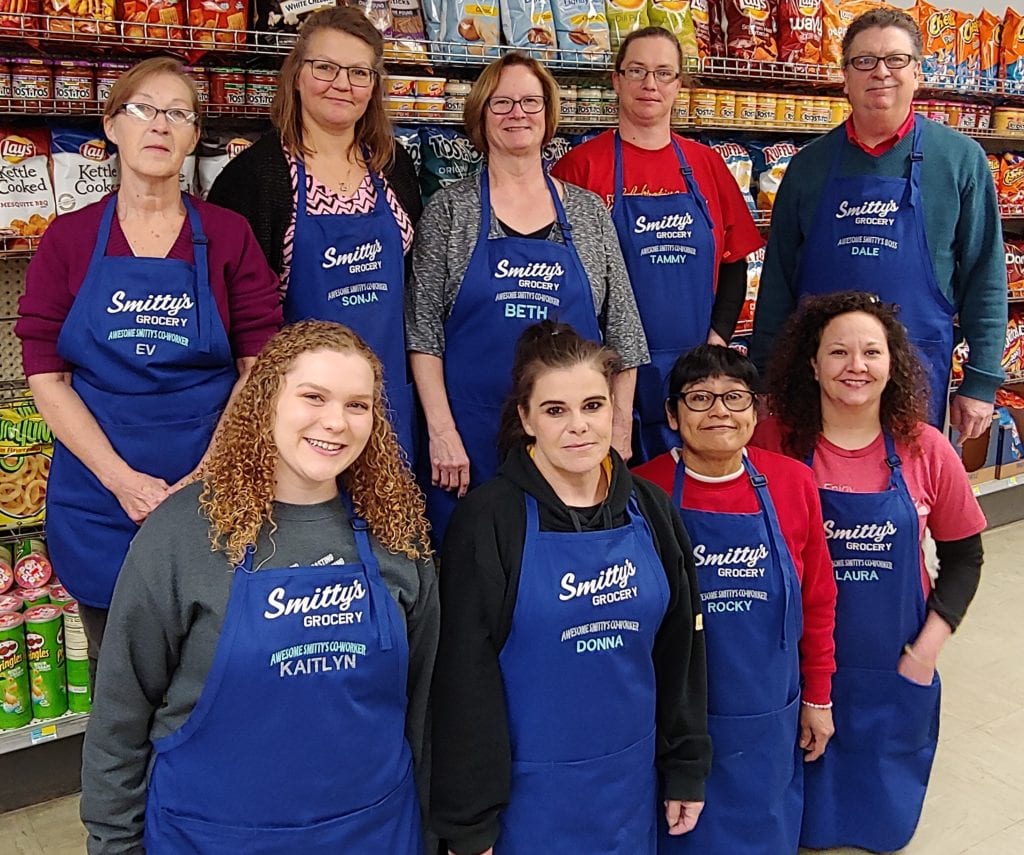
Smith and his staff, who he calls “the best employees in town,” are no strangers to serving their neighbors. Every Christmas, they hold the free Marge Peterson Annual Christmas Dinner, named in honor of the woman who started Dunlap’s food pantry. Smitty’s is a drop-off spot for donations all year round.
When COVID-19 first appeared in Iowa, Smitty’s immediately increased their sanitization efforts. “We’ve always gotten compliments about how clean and organized we are,” Smith says. “Customers liked that when they came in, they could smell bleach. When Health and Human Services called to make recommendations, we were already doing most of them.”
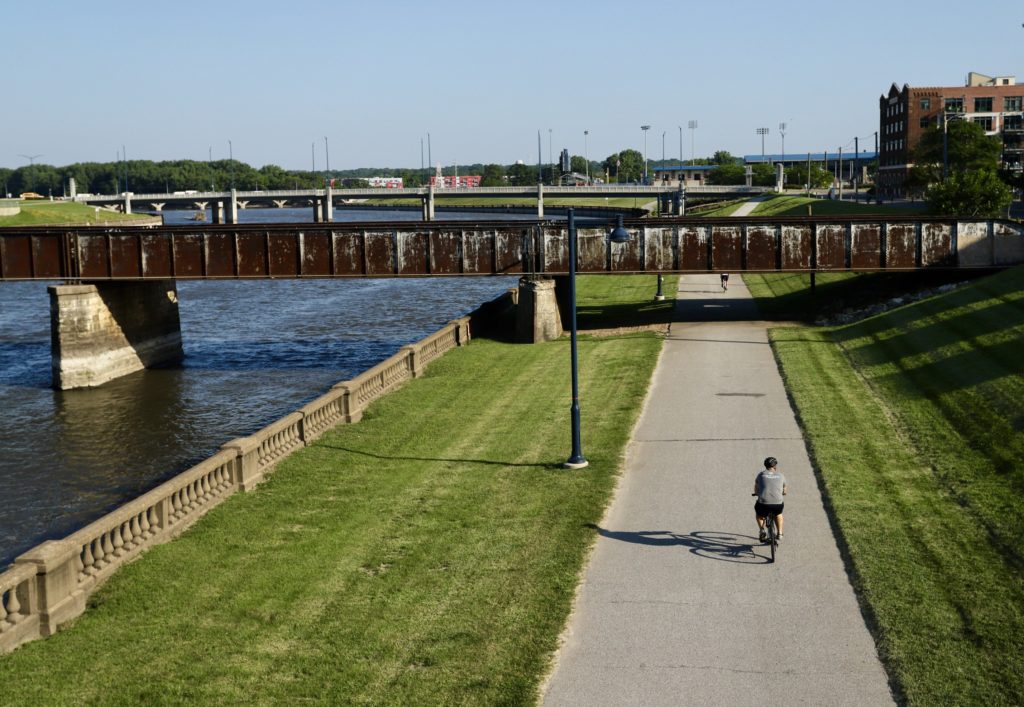
Smitty’s started offering curbside pickup for its customers and also launched a free grocery delivery program to serve Dunlap. Around 15 to 20 volunteers, dubbed “Smitty’s Angels,” continue to bring groceries to elderly and high-risk Dunlap residents who are unable to safely shop for themselves.
In return, the community has supported Smitty’s right back. Paula Heffernan, who runs Heffernan’s Gold Slipper restaurant with her husband in Dunlap, sewed masks for the grocery store’s staff. Other locals pitched in with masks that were passed on to vulnerable customers. Most importantly, everyone in town has been mindful of keeping each other safe as they move forward.
And that’s not uncommon across Iowa—from the smallest towns to the biggest cities, especially as restrictions lift and life returns somewhat to normal. It’s abundantly clear that everyone’s in this together.

